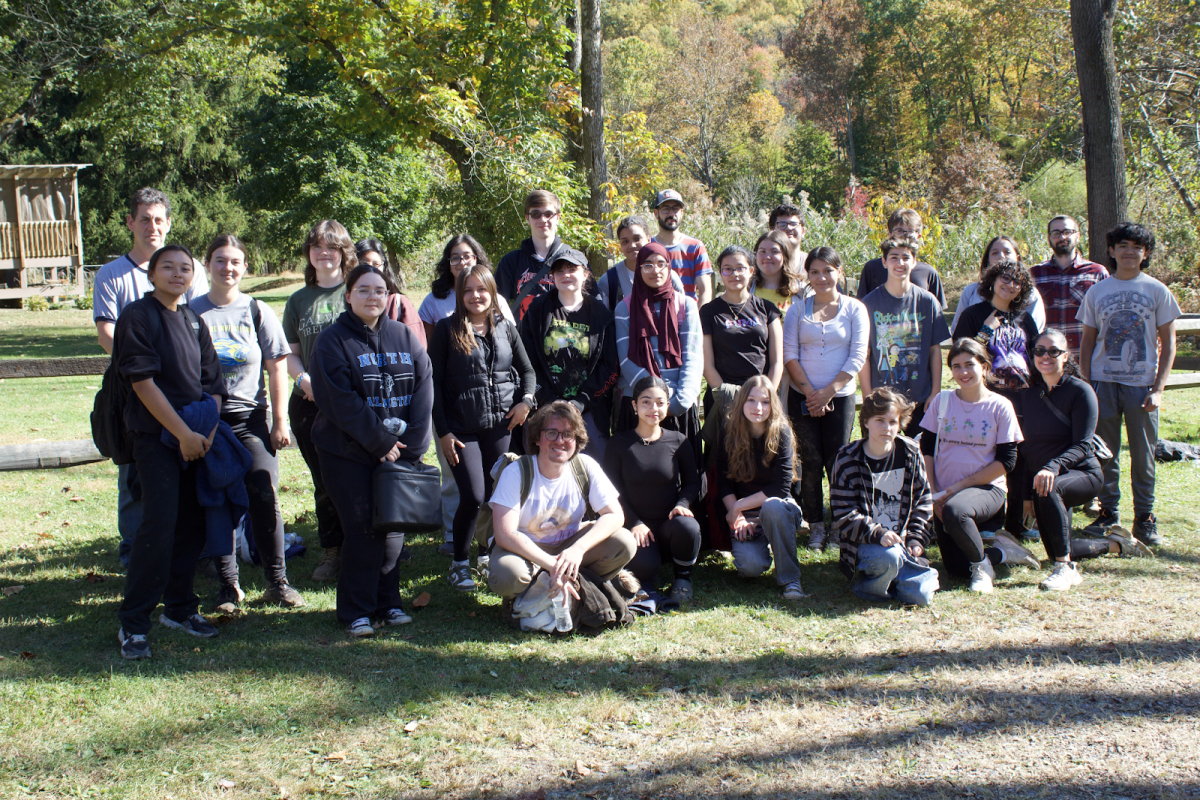On Saturday, October 19th, members of the NAHS Environmental Club and CTE Program took a trip to Hunterdon County to help the Musconetcong Watershed Association in their goal of planting 200 native trees and shrubs in the town of Bloomsbury. The area, like much of New Jersey, is wrestling with the spread of invasive species: for example, the invasive grass phragmites, which overwhelmed the area, had to be cut down to clear land for planting.
New Jersey ecosystems have been ravaged by many invasive species, such as grasses like phragmites that snuff out native grasses, and do not provide the food and shelter that native animal species use indigenous grasses for. Programs such as wide-scale tree plantings, however, prove to be an effective method for reducing the harm that invasive species are able to inflict.
Volunteers were provided with gloves, shovels, plant cages, support tubes, stakes, and an assortment of woody plants to put in the ground. The plants were removed from their pots and planted six to eight feet apart, and supported by using materials provided: thinner trees had plastic tubes placed over them and fastened with stakes, while shrubs and wider trees were surrounded by a wire mesh. The group worked for five hours from nine to two planting as much vegetation as possible.
Introducing and reintroducing native plant life to areas where they are missing not only helps to combat the spread of invasive species, but also attracts other native flora and fauna who feed on and live in symbiosis with those plants. These trees also create a riparian buffer zone, or an area of woody vegetation planted besides a body of water, such as a lake or a stream. This buffer zone guards the shoreline from erosion, and the water from pollutants such as pesticides and waste that are caught in runoff. It also provides shade, shelter, and a food source to both aquatic and terrestrial life, and can be used to grow crops such as fruits and nuts.
All of the 200 trees were successfully planted by the time the bus departed back for North Arlington. The Environmental Club plans to get involved in more projects throughout this school year, including cleanups, gardening projects, recycling drives, fundraisers, awareness campaigns, and more field trips. If you’re interested in participating in club activities, meetings take place every Thursday afterschool in the construction lab. New members are always welcome.

